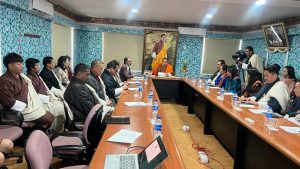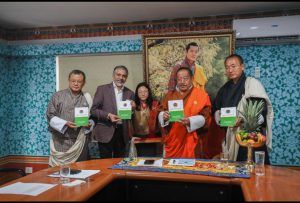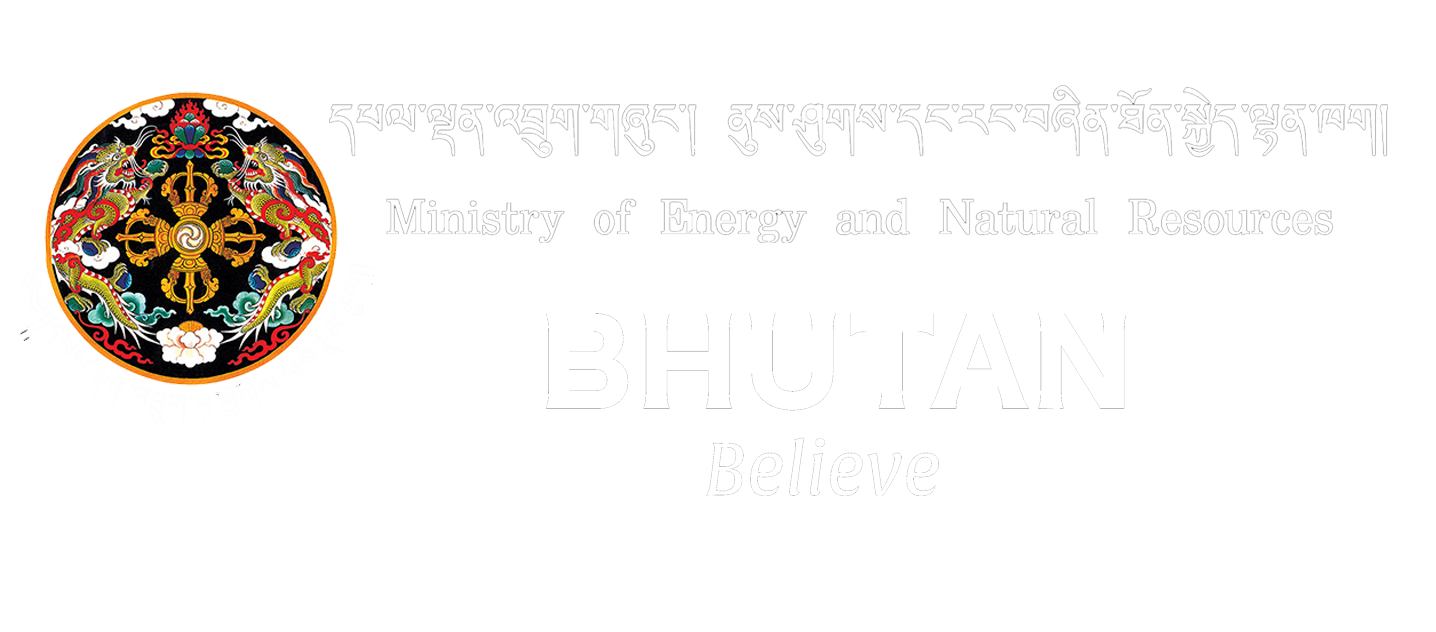MoENR, Thimphu, 30th July 2025
The Hon’ble Lyonpo of the Ministry of Energy and Natural Resources (MoENR) today officially launched the National Energy Policy 2025 (NEP 2025), following its recent approval by the Royal Government of Bhutan.
Hydropower has long underpinned Bhutan’s economy, contributing significantly to revenue and GDP. However, rising domestic demand, climate impacts and seasonal variability have exposed growing energy security concerns, particularly during winter months when domestic generation falls short.
To address these challenges, the NEP 2025 sets a bold new direction for Bhutan’s energy sector, focusing on diversification, modernization and sustainability. The policy aims to strengthen hydropower while accelerating solar and other renewable resources, improving energy efficiency and enhancing grid flexibility through modernization and storage.
A unified and forward-looking framework NEP 2025 consolidates and supersedes four earlier energy related policies into a single cohesive framework. It marks a strategic shift by opening hydropower and solar development to private and foreign investments, under defined conditions, signalling a new era of public-private collaboration.
The policy targets 25,000MW of installed capacity by 2040 – 20,000 MW of hydropower and 5000 MW solar, to enable Bhutan’s ambition of becoming a “High-income GNH Economy by 2034” and to power long-term energy security and sustainable growth.
Key Highlights of NEP 2025:
● The hydropower projects are classified as Mega (> 1000 MW), Large (501 – 1000 MW), Medium (101 – 500 MW) and Small (≤ 100 MW).
● For the first time, domestic and foreign investors can hold up to 49% equity in hydropower projects through PPPs with a designated government agency. Solar projects are fully open to both FDI and the local private sector.
● Emphasizes on multi-purpose, reservoir and pumped storage projects including solar hybrids to ensure year-round firm power and climate resilience.
● Strategic foreign partnerships are welcome for above 100 MW capacity hydropower projects while domestic investors are allowed for all capacities.
● The renewable energy projects shall be built through concessions with provision for one-time extension of five years especially for hydro based on certain predefined conditions.
● All hydropower projects of medium size and above shall provide 13% of net electricity generated to RGoB as free power while the free power quantum for small hydro shall be determined at the time of project commissioning.
● Solar and other renewable energy sources will be developed through both public and private investments including FDI in the form of PPP, independent power producer (IPP) and captive arrangements. Both foreign and domestic investors can also partner with an RGoB authorized agency for solar energy development with a minimum of 26% equity by the latter.
● Promotes Prosumers and Renewable Energy Service Providers (RESP) to harness solar and other renewable energy sources by involving the consumers and the private sector.
● The policy enables creation of a domestic electricity market platform for aggregating power generations for supply and trading.
● Various energy efficiency and conservation measures will be implemented across industries and households to promote energy savings (demand-side management).
● Promote productive end-use of renewable energy solutions to empower communities, enhance livelihoods and support sustainable socio-economic development.
● Promote innovative research and development and use of digital twin, smart grids and adoption of AI/IoT etc.
● The policy will support sustainable transportation systems including e-mobility, hydrogen fuel cell electric vehicle (FCEV), hybrids, biofuels as well as other emerging technologies like SAF.



